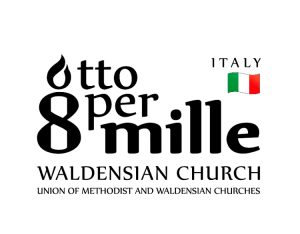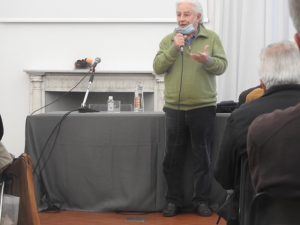From lobbying for fighter jets to supplying depleted uranium, the UK is making sure escalation is the only way forward
All Global Research articles can be read in 51 languages by activating the Translate Website button below the author’s name.
Ukrainian president Volodymyr Zelensky made an unexpected trip to Britain last week on a whistle-stop tour of European capitals, pleading for more powerful and longer-range weapons to use in his war against Russia.
What was hard to ignore once again was the extent to which the UK is playing an outsize role in Ukraine.
Last year, shortly after the start of the war, the then-prime minister, Boris Johnson, hurried to Kyiv – presumably on Washington’s instructions – apparently to warn Zelensky off fledgling peace talks with Moscow.
At around the same time, the Biden administration made clear it favoured an escalation in fighting, not an end to it, as an opportunity to “weaken” Russia, a geo-strategic rival along with China.
Since then, the UK has been at the forefront of European efforts to entrench the conflict, helping to lobby for the supply of weapons, training and military intelligence to Ukrainian forces.
British tanks and thousands of tank shells – including, controversially, some made from depleted uranium – are being shipped out. Last week, the UK added hundreds of long-range attack drones to the inventory.
And an unspecified number of £2m-a-blast Storm Shadow cruise missiles, with a range of nearly 300km, have started arriving. Last week Ben Wallace, Britain’s defence secretary, said the missiles were already in use, adding that Kyiv alone was deciding on the targets.
Storm Shadow allows the Ukrainian military to strike deep into Russian-annexed parts of Ukraine – and potentially at Russian cities too.
A recent leak revealed that the Pentagon had learnt through electronic eavesdropping of Zelensky’s eagerness for longer-range missiles so that his forces were “capable of reaching Russian troop deployments in Russia”.
Britain now pays little more than lip service to the West’s claim that its role is only to help Ukraine defend itself from Russian aggression. The supply of increasingly offensive weapons has turned Ukraine into what amounts to a proxy battleground on which the Cold War can be revived.
During Zelensky’s visit to the UK last week, Johnson’s successor, Rishi Sunak, effectively acted as an arms broker for Ukraine, joining with the Netherlands in what was grandly dubbed an “international coalition” to pressure the Biden administration and other European states to supply Kyiv with F-16 fighter jets.
Washington appeared not to need much cajoling. Three days later, Biden dramatically changed tack at a G7 summit in Japan. He effectively gave a green light for US allies to supply Ukraine not only with US-made F-16s but similar fourth-generation fighter jets, including Britain’s Eurofighter Typhoon and France’s Mirage 2000.
Administration officials surprised European leaders by suggesting the US would be directly involved in the training of pilots outside Ukraine.
After a highly staged “surprise” visit by Zelensky to the summit at the weekend, Biden said he had been given a “flat reassurance” that the jets would not attack Russian territory.
British officials, meanwhile, indicated that the UK would start training Ukrainian pilots within weeks.
No 10 has made clear that Sunak’s purpose is to build “a new Ukrainian air force with Nato-standard F-16 jets” and that the prime minister believes “Ukraine’s rightful place is in Nato”.
These statements seem intended once again to block any potential path towards peace. President Vladimir Putin repeatedly spoke out against Nato’s growing, covert involvement in neighbouring Ukraine before Russia launched its invasion 15 months ago.
It is hard to imagine that the UK is heading off-script. More likely, the Biden administration is using Britain to make the running and soften up Western publics as Nato becomes ever more deeply immersed in the military activities of Russia’s neighbour.
Ukraine is being gradually turned into the very Nato forward base that first set Moscow on course to invade.
At the same time, Britain appears to be exploiting the Ukraine war as a showcase for its weaponry. After the US, it has been the largest supplier of military equipment to Ukraine.
This week it was reported that UK arms exports hit a record £8.5bn, more than double last year’s total. The last time Britain was so successful at selling weapons was in 2015, at the height of the Syrian war.
Europe’s weapons largesse is, we are told, the precondition for Ukraine to mount a long-awaited counter-offensive to take back territory Russia has seized in the eastern and southern parts of Ukraine.
Speaking candidly in Florence this month, Josep Borrell, the European Union’s top diplomat, ruled out peace talks. Ukraine needed massive supplies of arms because otherwise “Ukraine will fall in a matter of days”, he said.
Borrell’s warning not only suggested the precariousness of Ukraine’s situation but implied that, out of desperation, its leaders might be prepared to approve ever riskier combat scenarios.
And thanks to British meddling, the heavy toll of casualties as the war rages on – among the Ukrainian population and Russian soldiers, as well as potentially inside Russia’s borders too – may be felt not just over the coming months but for decades.
In March, Declassified broke the story that some of the thousands of tank shells Britain is supplying to Kyiv are made of depleted uranium (DU), a radioactive heavy metal produced as waste from nuclear power plants.
Keir Starmer’s opposition Labour party has said it “fully supports” the UK government’s supply of these armour-piercing shells to Ukraine, despite the long-term risk they pose to those exposed to the chemically toxic contamination left behind.
DU shells fragment and burn when they hit a target. One analyst, Doug Weir, from the Conflict and Environment Observatory, told Declassified that the ammunition produces “chemically toxic and radioactive DU particulate [microscopic particles] that poses an inhalational risk to people”.
Nonetheless, British ministers insist the threat to human health is low – and worth the risk given the military gains in helping Ukraine to destroy Russian tanks.
As Declassified has highlighted, however, a growing body of evidence following the use of such shells by the US in the former Yugoslavia in the 1990s and by Britain and the US in Iraq a decade later undermines these reassurances.
Italian courts have upheld compensation claims against the country’s military in more than 300 cases where Italians who served in the police or as soldiers in Bosnia and Kosovo have died of cancer after being exposed to DU.
Many thousands more Italian former service-people are reported to have developed cancers.
In 2001 Tony Blair’s government downplayed the role of DU in Italy’s deaths to avoid upsetting the new administration of George W Bush. Both leaders would soon approve the use of DU rounds in Iraq, though the UK admitted a “moral obligation” to help clean up some of the contamination afterwards.
The West has taken little interest in researching the effects of DU weapons in Iraq, even though local civilian populations have been the most exposed to its contamination. DU shells were used extensively during both the 1991 Gulf war and more than a decade later during the US and British-led occupation of Iraq.
Iraqi government statistics suggest the rates of cancers leapt 40-fold between the period immediately before the Gulf war and 2005.
The city of Fallujah, which the US devastated after the 2003 invasion, is reported to suffer “the highest rate of genetic damage in any population ever studied”. Birth defects are said to be roughly 14 times the rate in the Hiroshima and Nagasaki regions of Japan, where the US dropped atomic bombs.
In 2018 the British government reclassified a 1981 report into the dangers of DU weapons by the Ministry of Defence’s Atomic Weapons Research Establishment it had made available three years earlier.
Meanwhile, James Heappey, the armed forces minister, has misleadingly suggested that international bodies such as the World Health Organisation and the United Nations have found no long-term health or environmental hazards associated with DU weapons.
But as Weir told Declassified in March: “None of the entities cited by the MoD has undertaken long-term environmental or health studies in conflict areas where DU weapons have been used.”
In other words, they simply don’t know – and possibly don’t care to find out.
Weir added that the WHO, UN and International Atomic Energy Agency had all called for contaminated areas to be clearly marked and access restricted, while at the same time recommending that risk awareness campaigns be targeted at nearby communities.
British officials have also recruited the Royal Society to their efforts to claim DU is safe – as the US did earlier, in the run-up to the 2003 invasion of Iraq, citing two of its reports published in 2001 and 2002.
However, the Royal Society has vocally distanced itself from such claims. A spokesperson told Declassified that, despite the British government’s assertions, DU was no longer an “active area of policy research”.
Back in 2003, the Royal Society rebuked Washington, telling the Guardian that soldiers and civilians in Iraq “were in short and long term danger. Children playing at contaminated sites were particularly at risk.”
At the same time, the chairman of the Royal Society’s working group on depleted uranium, Professor Brian Spratt, warned that corroding shells could leach DU into water supplies. He recommended removing ordinance and conducting long-term sampling of water supplies.
By lobbying for more overtly offensive weapons and introducing DU shells into the war, Britain has raised the stakes in two incendiary ways.
First, it is driving the war’s logic towards ever greater escalation, including nuclear escalation.
Russia itself possesses DU weapons but is reported to have avoided using them. Moscow has long warned that it regards use of DU in Ukraine in nuclear terms: as the equivalent of a “dirty bomb”.
In March Putin responded to the UK’s decision to supply DU tank shells by vowing to move “tactical” nuclear weapons into neighbouring Belarus. Meanwhile, his defence minister, Sergei Shoigu, said it put the world “fewer and fewer steps” away from “nuclear collision”.
But Britain is also creating a situation where a catastrophic move, or miscalculation, by either Russia or Ukraine is becoming ever more likely, as events last week highlighted only too clearly.
Russia struck a military ammunition depot in western Ukraine, creating a giant fireball. Rumours suggested the site may have included British DU shells.
Whether true or not, it is a reminder that Moscow could hit such a storage site, intentionally or accidentally, spreading contamination widely over a built-up area.
With Ukraine soon to be in possession of a full array of offensive weapons, largely courtesy of the UK – not only long-range drones, cruise missiles and tanks but fighter jets – it is not hard to imagine terrifying scenarios that could quickly bring Europe to the brink of nuclear conflict.
Moscow hits a DU ammunition depot, exposing a large civilian population to toxic contamination. Ukraine retaliates with air strikes deep inside Russia. The path to a nuclear exchange in Europe has never looked closer.
Those who warned that peace talks were urgently needed rather than an arms race in Ukraine are looking more prescient by the day. For how much longer can their voices continue to be silenced, not only by western leaders but by the western media too?


![A Palestinian child receives medical treatment at Al Ahli Baptist Hospital after getting severely injured in an Israeli attack over Rimal neighborhood in Gaza City, Gaza on July 07, 2024. [Dawoud Abo Alkas - Anadolu Agency]](https://i0.wp.com/www.middleeastmonitor.com/wp-content/uploads/2024/07/AA-20240707-35082349-35082339-ISRAELI_ATTACKS_ON_GAZA_CONTINUE.jpg?fit=1200%2C800&ssl=1)







